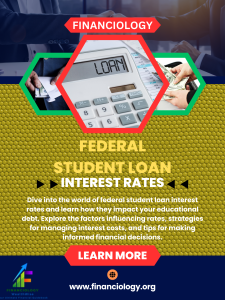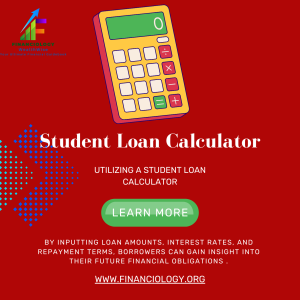The Best Student Loan Refinancing Companies in 2024
9 min read
Exploring Student Loan Refinancing Companies Revealed in 2024
Finding the Right Partner for Your Financial Goals:
Discover the top student loan refinancing companies and learn how to choose the right partner to optimize your financial future. Explore key factors to consider, the benefits of refinancing, and tips for selecting the best company for your needs.
Student loan refinancing offers borrowers the opportunity to lower their interest rates, reduce monthly payments, and simplify repayment. Choosing the right student loan refinancing company is essential for maximizing these benefits and achieving long-term financial success.
Understanding Student Loan Refinancing
Student loan refinancing involves taking out a new loan with a private lender to pay off existing student loans, including federal and private loans. The new loan typically comes with a lower interest rate, potentially saving borrowers money over the life of the loan.
Exploring Top Student Loan Refinancing Companies

Several student loan refinancing companies stand out for their competitive rates, flexible terms, and customer service. Some of the top companies include:
- SoFi: Known for its competitive rates and member benefits, SoFi offers refinancing options for both federal and private student loans. Borrowers can benefit from perks such as career coaching, unemployment protection, and member events.
- Earnest: Earnest distinguishes itself with its personalized approach to refinancing, taking into account borrowers’ financial history, career prospects, and future goals. The company offers flexible repayment terms and allows borrowers to skip one payment every 12 months.
- Laurel Road: Laurel Road offers refinancing options for medical and dental professionals, as well as student loans for undergraduate and graduate studies. Borrowers can benefit from competitive rates, autopay discounts, and a streamlined application process.
- CommonBond: CommonBond stands out for its commitment to social impact, offering refinancing options with a focus on community and giving back. Borrowers can access competitive rates, flexible repayment terms, and personalized support from dedicated loan advisors.
Key Factors to Consider
When evaluating student loan refinancing companies, borrowers should consider the following factors:
- Interest Rates and Terms: Compare interest rates, repayment terms, and fees offered by different refinancing companies to find the most favorable option for your financial situation.
- Customer Service and Support: Assess the level of customer service and support provided by each company, including access to loan advisors, online resources, and educational tools.
- Additional Benefits and Features: Consider any additional benefits or features offered by refinancing companies, such as career coaching, unemployment protection, or member discounts.
- Eligibility Requirements: Review eligibility requirements, such as credit score criteria, income thresholds, and minimum loan amounts, to ensure you qualify for refinancing with your chosen company.
Tips for Selecting the Best Company
To select the best student loan refinancing company for your needs, consider the following tips:
- Shop Around: Compare offers from multiple refinancing companies to find the most competitive rates and terms.
- Read Reviews and Testimonials: Research customer reviews and testimonials to gauge the experiences of other borrowers with each company.
- Evaluate Customer Service: Reach out to customer service representatives to assess responsiveness, knowledge, and willingness to assist.
- Consider Long-Term Goals: Choose a refinancing company that aligns with your long-term financial goals and offers benefits and features that support your needs.
Student loan refinancing companies play a crucial role in helping borrowers optimize their financial future. By exploring top refinancing options, considering key factors, and selecting the best company for their needs, borrowers can take control of their student loan debt and pave the way toward greater financial stability and success.
Here is a complete student loan refinancing companies list:
- Citizen Financial Group
- College Ave Student Loan
- Sallie Mae Student Loan
- Ascent Student Loan
- Education Loan Finance
- PNC Student Loan
- Custom Choice Student Loan
- LendKey Student Loan
- Wells Fargo Student Loan
- Ally Bank Student Loan
Extending Your Financial Breathing Room:
The Benefits of Student Loan Grace Period Extension

Maximizing financial flexibility, understanding student loan grace period extension and its advantages: Explore the option of extending your student loan grace period and discover how it can provide valuable financial flexibility. Learn about eligibility criteria, benefits, and tips for making the most of your extended grace period.
For recent graduates, the transition from college to the workforce can be both exhilarating and daunting, especially when it comes to managing student loan debt. Fortunately, extending your student loan grace period offers a valuable opportunity to ease into repayment and gain greater financial flexibility.
Understanding Student Loan Grace Period Extension
The standard grace period for most federal student loans typically lasts six months after graduation, during which borrowers are not required to make payments. However, some borrowers may be eligible to extend this grace period under certain circumstances.
Exploring Eligibility Criteria
Eligibility for a student loan grace period extension may vary depending on the type of loan and individual circumstances. Common eligibility criteria include:
- Returning to School: Borrowers who enroll in an eligible post-secondary program on at least a half-time basis may qualify for a grace period extension.
- Military Service: Active duty military service members may be eligible for a grace period extension during their service period and up to 13 months following demobilization.
- Economic Hardship: Borrowers experiencing financial difficulties or unemployment may request a temporary extension of their grace period to alleviate financial strain.
Benefits of Grace Period Extension
Extending your student loan grace period offers several benefits, including:
- Additional Time to Prepare: A longer grace period provides borrowers with extra time to secure employment, establish a budget, and plan for student loan repayment.
- Financial Flexibility: By delaying the start of repayment, borrowers can allocate funds towards other financial priorities, such as building an emergency fund or addressing immediate expenses.
- Reduced Stress: The prospect of looming student loan payments can cause anxiety for recent graduates. Extending the grace period can alleviate some of this stress and provide peace of mind as borrowers navigate the transition to post-graduate life.
Making the Most of Your Extended Grace Period
To make the most of your extended student loan grace period, consider the following tips:
- Evaluate Financial Situation: Take stock of your financial situation and priorities during the extended grace period, including job prospects, income potential, and expenses.
- Develop a Repayment Strategy: Use the extra time to develop a comprehensive repayment strategy, exploring repayment plans, budgeting tools, and potential strategies for paying off student loans efficiently.
- Explore Loan Consolidation or Refinancing: Consider whether loan consolidation or refinancing may be beneficial during the extended grace period, especially if it can lead to lower interest rates or more favorable repayment terms.
- Communicate with Loan Servicer: Stay in communication with your loan servicer throughout the extended grace period, notifying them of any changes in your circumstances and exploring available options for assistance or repayment.
Extending your student loan grace period offers a valuable opportunity to gain financial breathing room and prepare for the transition to repayment. By understanding eligibility criteria, benefits, and tips for making the most of your extended grace period, borrowers can navigate the post-graduate landscape with greater confidence and financial stability.
Navigating Student Loan Forbearance
Understanding Requirements and Benefits:
Unlocking financial relief, essential student loan forbearance requirements explained: Delve into the world of student loan forbearance and discover the requirements for accessing this valuable financial relief option. Learn about eligibility criteria, benefits, and strategies for navigating temporary repayment pauses.
For borrowers experiencing financial hardship or facing unexpected challenges, student loan forbearance offers a reprieve from making monthly payments. Understanding the requirements for accessing forbearance is essential for borrowers seeking relief and managing their student loan debt effectively.
Understanding Student Loan Forbearance
Student loan forbearance allows borrowers to temporarily suspend or reduce their monthly loan payments for a specified period. Unlike deferment, which may be available for borrowers meeting specific criteria such as enrollment in school or economic hardship, forbearance is typically granted at the discretion of the loan servicer.
Exploring Forbearance Requirements
To qualify for student loan forbearance, borrowers must meet certain eligibility criteria, which may include:
- Financial Hardship: Borrowers experiencing financial difficulties, such as unemployment, underemployment, or significant medical expenses, may be eligible for forbearance.
- Temporary Inability to Make Payments: Borrowers facing short-term financial challenges or unexpected expenses may request forbearance to temporarily pause or reduce their monthly payments.
- Discretionary Approval: Loan servicers have the discretion to grant forbearance based on individual circumstances, but borrowers must provide documentation supporting their request, such as proof of income, unemployment benefits, or medical bills.
Benefits of Forbearance
Student loan forbearance offers several benefits to borrowers facing financial challenges:
- Temporary Relief: Forbearance provides temporary relief from making monthly student loan payments, allowing borrowers to address immediate financial needs or unexpected expenses.
- Prevention of Default: By temporarily pausing or reducing payments, forbearance helps prevent delinquency or default on student loans, protecting borrowers’ credit scores and financial well-being.
- Flexibility in Repayment: Forbearance offers repayment flexibility, allowing borrowers to adjust their payment schedule to align with changes in their financial situation.
Navigating Forbearance
When considering student loan forbearance, borrowers should keep the following strategies in mind:
- Explore Alternatives: Consider alternative options for managing student loan debt, such as income-driven repayment plans, deferment, or loan forgiveness programs, before requesting forbearance.
- Communicate with Loan Servicer: Reach out to your loan servicer to discuss forbearance options and eligibility criteria. Provide necessary documentation to support your request and ensure timely processing.
- Understand the Impact: Understand that interest may continue to accrue on your student loans during forbearance, potentially increasing the total amount repaid over the life of the loan. Consider making interest payments during forbearance to prevent capitalization and minimize long-term costs.
Student loan forbearance offers a valuable option for borrowers facing financial hardship or unexpected challenges. By understanding the requirements, benefits, and strategies for navigating forbearance, borrowers can effectively manage their student loan debt and achieve greater financial stability.
Exploring Student Loan Repayment Assistance Programs
Unlocking financial relief, student loan repayment assistance programs demystified: Discover student loan repayment assistance programs and how they can provide valuable support for borrowers. Learn about eligibility criteria, benefits, and strategies for accessing and maximizing assistance to manage student loan debt effectively.
For borrowers grappling with the burden of student loan debt, repayment assistance programs offer a lifeline by providing valuable support and relief. Understanding the intricacies of these programs is essential for borrowers seeking to navigate the complexities of student loan repayment successfully.
Understanding Student Loan Repayment Assistance Programs
Student loan repayment assistance programs are initiatives designed to help borrowers manage their student loan debt effectively. These programs may be offered by employers, government agencies, nonprofit organizations, or educational institutions and typically provide financial assistance or incentives to support loan repayment.
Related Posts:
- Demystifying Federal Student Loan Interest Rates
- Discover Student Loan Forgiveness Programs in 2024
- Explore the Best Student Loans in California
Exploring Eligibility Criteria
Eligibility criteria for student loan repayment assistance programs vary depending on the program’s sponsor and objectives.
Common eligibility criteria may include:
- Employment in Specific Fields: Some programs target borrowers working in certain professions or industries, such as healthcare, education, public service, or nonprofit organizations.
- Income Level: Certain programs may have income thresholds or requirements for borrowers to demonstrate financial need to qualify for assistance.
- Educational Background: Some programs may require borrowers to have specific educational qualifications or degrees to be eligible for assistance.
Benefits of Repayment Assistance Programs
Student loan repayment assistance programs offer several benefits to borrowers, including:
- Financial Assistance: Many programs provide financial assistance, such as loan repayment subsidies, grants, or stipends, to help borrowers pay down their student loan debt more quickly.
- Debt Reduction: By providing incentives for loan repayment, these programs help borrowers reduce their overall student loan debt burden and achieve financial freedom more rapidly.
- Career Advancement Opportunities: Some programs offer professional development or career advancement opportunities, such as training, mentorship, or networking events, to support borrowers in their career goals.
Strategies for Accessing and Maximizing Assistance
To access and maximize assistance from student loan repayment programs, borrowers can consider the following strategies:
- Research Available Programs: Explore available repayment assistance programs, including those offered by employers, government agencies, and nonprofit organizations, to identify options that align with your career goals and financial needs.
- Understand Eligibility Requirements: Review eligibility criteria and application requirements for each program to determine your eligibility and ensure you meet the necessary qualifications.
- Seek Professional Guidance: Consider seeking guidance from financial advisors, career counselors, or loan servicers to navigate the application process and maximize your chances of securing assistance.
- Stay Informed: Stay informed about changes or updates to repayment assistance programs and opportunities for additional support or incentives to manage student loan debt effectively.
Closing Thoughts
In conclusion, student loan repayment assistance programs offer valuable support for borrowers seeking to manage their student loan debt and achieve financial stability. By understanding eligibility criteria, benefits, and strategies for accessing and maximizing assistance, borrowers can leverage these programs to alleviate financial burdens and pave the way toward a brighter financial future.
Helpful Student Loans Providers Links:
Laurel Road Refinance Student Loans: Click here
Earnest Private Student Loans: Click here






